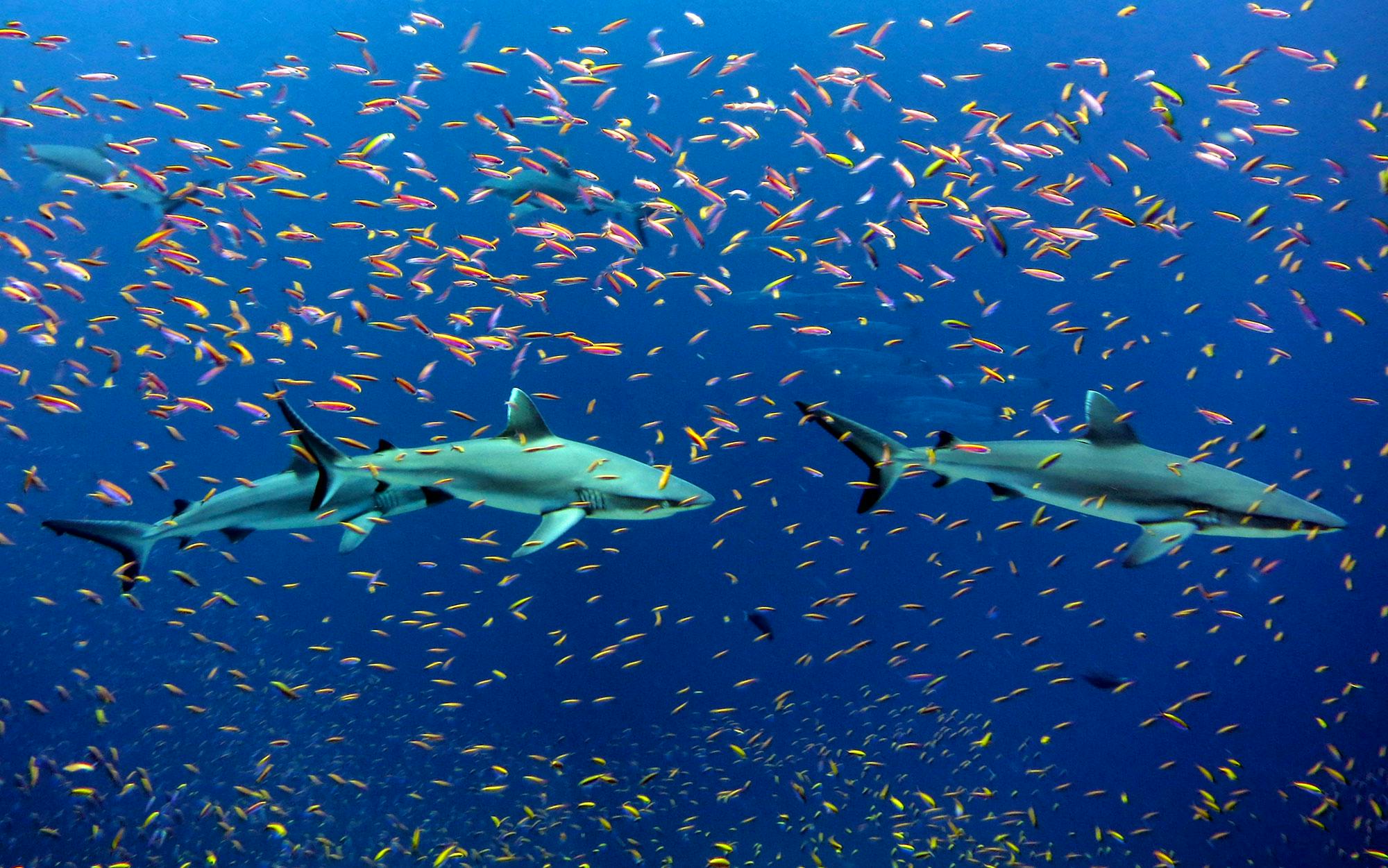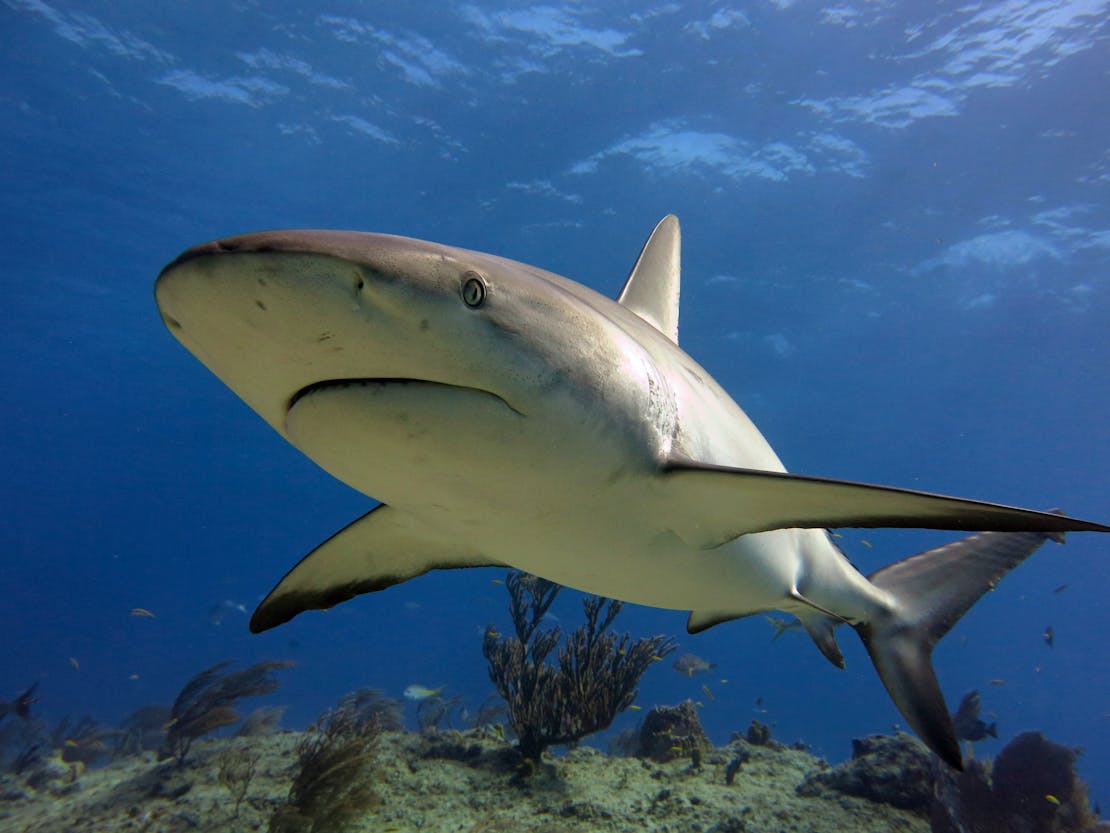The statistics spell out the scary situation the requiem shark family (Carcharhinidae) finds itself in. The family consists of grey reef sharks, dusky sharks, smalltail sharks, sandbar sharks and 56 others. Sixty-eight percent of them are listed as threatened by the International Union for Conservation of Nature. Many populations have experienced declines of 70 percent or more in recent years, with some driven to the brink of extinction.
Nearly a third (19 species) are categorized as either critically endangered or endangered and, without regulations around their international trade, will be threatened with extinction in the very near future.
Among the leading causes of their plummet is the shark fin trade. A survey of Chinese and Hong Kong fin markets found at least 35 species in the requiem shark family present, making up almost half of all the fins there. What’s more, 77 percent of small fins at Hong Kong and Chinese trade ports came from requiem sharks. The trade in small fins is now rapidly increasing because they are much less expensive to make soup from. This is significant as requiem sharks give birth to live young, and juvenile sharks are typically too young and too small to have bred. By targeting these young animals, it can have a big impact on the reproductive rate of shark populations.
Adopting regulations around the trade of these species is critical at this year’s CITES meeting (Convention on International Trade in Endangered Species of Wild Fauna and Flora) in order to get ahead of this troubling trend.
As top predators, these beautiful fish are incredibly important to keeping the balance of the tropical and subtropical marine ecosystems that they inhabit and for maintaining the biodiversity on which we all depend.
Even as they are butchered unsustainably for their fins, requiem sharks are also facing unprecedented pressures from habitat degradation, climate change and pollution. For example, the coral reefs that grey reef sharks depend on are being pushed to the brink by warming seas. Sharks accumulate high levels of pollutants (such as mercury) from their prey, and coastal development is destroying much of their nearshore habitat, such as seagrass beds and mangroves. Concurrently, they face the threat of being caught as by-catch by trawler and longlines fisheries as their habitats are among the most heavily fished by these types of gear.
The proposal, presented by countries like Colombia, the Dominican Republic, El Salvador, Panama and many others including the European Union, to list the full family of requiem sharks on Appendix II is likely to be a very controversial issue this year at the CITES meeting in Panama. Some countries are strong opponents of any regulations that might impact the international shark fin trade. Although 19 of the 60 species of requiem sharks are considered to be endangered to some degree, the remaining species in the family are also being proposed for listing to cut down on poaching, as they are hard to tell apart from the imperiled species.
Listing these species means that countries wishing to trade products of any requiem sharks have to both issue a permit to exporters, and their governments will have to produce a “non-detriment finding”—a document which certifies that scientists have shown that the permitted trade does not adversely affect wild populations. Defenders of Wildlife will be advocating for the proposal and will share scientific and trade information with CITES delegates to help bolster their case for limiting trade and conserving these majestic shark species.







